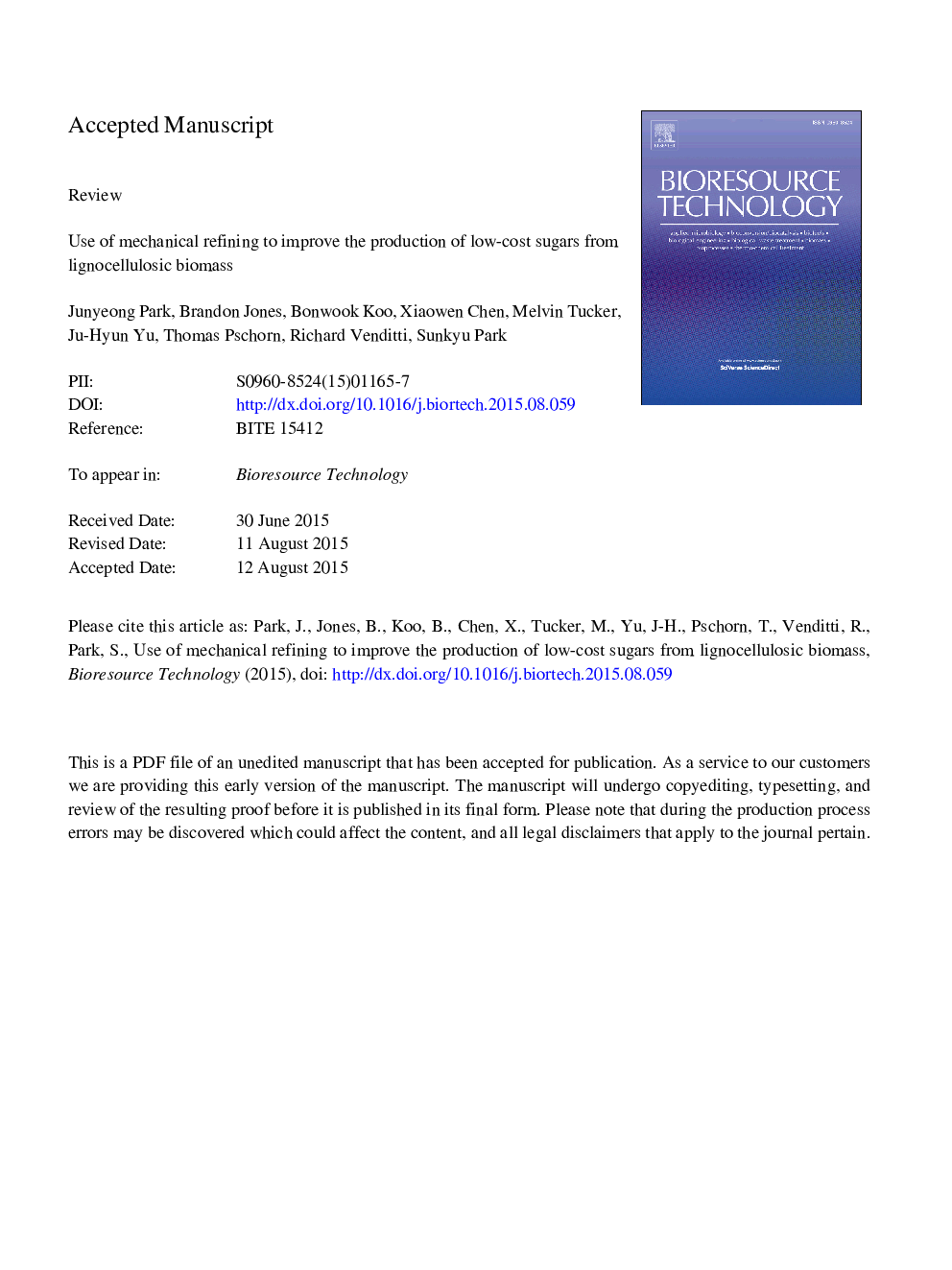| Article ID | Journal | Published Year | Pages | File Type |
|---|---|---|---|---|
| 7072904 | Bioresource Technology | 2016 | 26 Pages |
Abstract
Mechanical refining is widely used in the pulp and paper industry to enhance the end-use properties of products by creating external fibrillation and internal delamination. This technology can be directly applied to biochemical conversion processes. By implementing mechanical refining technology, biomass recalcitrance to enzyme hydrolysis can be overcome and carbohydrate conversion can be enhanced with commercially attractive levels of enzymes. In addition, chemical and thermal pretreatment severity can be reduced to achieve the same level of carbohydrate conversion, which reduces pretreatment cost and results in lower concentrations of inhibitors. Refining is versatile and a commercially proven technology that can be operated at process flows of â¼1500 dry tons per day of biomass. This paper reviews the utilization of mechanical refining in the pulp and paper industry and summarizes the recent development in applications for biochemical conversion, which potentially make an overall biorefinery process more economically viable.
Related Topics
Physical Sciences and Engineering
Chemical Engineering
Process Chemistry and Technology
Authors
Junyeong Park, Brandon Jones, Bonwook Koo, Xiaowen Chen, Melvin Tucker, Ju-Hyun Yu, Thomas Pschorn, Richard Venditti, Sunkyu Park,
